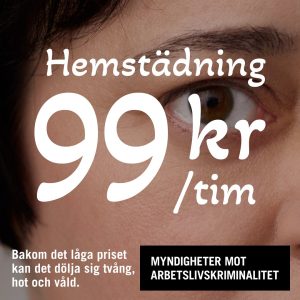Icelandic nurses commute between
Iceland and Scandinavia, mostly to Norway. Elsa B. Friðfinnsdóttir, who
heads the Icelandic Nurses’ Association, says a survey shows seven
percent of 2,800 union members have worked abroad in the past
year:
“They have mainly been travelling for shorter periods of time to
work abroad. More than 80 percent of the commuters went to Norway.”
Commuting is popular
Wages remain an important factor when nurses decide to travel abroad
to work. Friðfinnsdóttir has access only to a limited amount of
research but she of course meets many nurses on a regular basis.
According to Friðfinnsdóttir the nurses tell her they make large
amounts of money in short amounts of time because of the weak Icelandic
currency. She has noticed that commuting is very popular among those
working in operating theatres, in intensive care and A&E in
Iceland.
“Many consider going to Norway a form of further education,” she
says.
“They feel it is professionally rewarding and nice to change working
environments and to try something new,” says Friðfinnsdóttir.
Nurses say the work load is smaller in Norway than in
Iceland.
“It’s almost like going on holiday,” says Friðfinnsdóttir.
Friðfinnsdóttir points out that the work load in Icelandic hospitals
is enormous. If one nurse is off sick the others must work harder to
perform his or her tasks. There is no legal overtime because of cuts in
hospital budgets.
According to reports Friðfinnsdóttir has received from commuting
nurses, Norwegian hospitals enjoy a higher level of staffing. This
means fewer patients for each nurse in Norway compared to Iceland.
Commuting popular with doctors too
Nurses work a 40 hour week in Iceland. Many work 50 to 80 percent in
permanent jobs which they usually want to keep. They are allowed to
compress their working hours to take longer periods of time off in
order to commute. They also use holidays for work commuting.
“That means they can work from ten days to three weeks in Norway
before returning to their job in Iceland,” says Friðfinnsdóttir.
This form of commuting is popular among Icelandic doctors too.
Þorbjörn Jónsson is the president of the Icelandic Medical Association.
Jónsson says the numbers show Icelandic doctors are moving abroad. The
number of union members has dropped by 11 percent in the past two
years. But these numbers do not take the commuting into account.
“Commuting has increased dramatically among doctors in the wake of
the economic crisis in Iceland. It has become popular to commute,” says
Jónsson.
Many doctors work part time in Iceland and part time in Scandinavia.
Sometimes a group of Icelandic doctors will share one or two practices
in Scandinavia. They take turns to staff it. It is also popular to take
locums abroad, especially in Sweden.
Bought Ophelia
Guðmundur Karl Snæbjörnsson is a general practitioner. He runs the
job site Hvítir Sloppar which helps doctors, nurses and midwives find
work – mainly in Sweden. The company has three offices in Sweden and
one in Reykjavik.
Hvítir Sloppar cooperates with Skandinavisk Hälsovård (Scandinavian
Healthcare), Svensk Närsjukvård (Swedish Local Healthcare) and
MediCare. Snæbjörnsson’s partner has also recently bought the Swedish
company Ophelia which oversees the majority of the commuting market for
nurses and midwives.
Snæbjörnsson himself spent his last study years in Sweden and has
good contacts at hospitals and health centres, not least in the south
of Sweden. He has found several hundreds of jobs for Icelandic health
workers in recent years.
Demand is large. Sweden and Norway need health workers and Icelandic
doctors have often spent the final years of studying in Scandinavia,
which means they speak fluent Swedish or Norwegian.
“But we can also find work for Swedish or Norwegian doctors in
Iceland,” says Snæbjörnsson.
Swedish doctors to Iceland
Snæbjörnsson has big plans to increase workplace cooperation in the
Nordic region. Icelandic radiologists with language skills should be
able to investigate and analyse x-rays taken elsewhere in Scandinavia
and send their results to hospitals in Norway, Sweden or Denmark.
There are talks of cooperation between several hospitals in Norway,
Sweden and Denmark.
“This way we find working tasks for doctors,” he says.
“It doesn’t matter whether a radiologist is in Iceland or Sweden.
All that doctors need to do their job is knowledge, experience and
language skills.”
Þóra Ágústsdóttir is Eures’ advisor at Vinnumálastofnun, the
Icelandic Directorate of Labour. She says Vinnumálastofnun cannot keep
track of work commuting from Iceland. But Ágústsdóttir does regularly
meet Icelanders who have permanent jobs and who are also interested in
commuting to other Nordic countries.
“We don’t have any figures but many ask us what possibilities exist.
Our clients often attend courses run by Föreningen Norden (the Nordic
Society) aimed at preparing Icelandic families for the move to Norway,”
says Ágústsdóttir.
It is often craftsmen of all skills who are interested in work in
the Nordic region. Ágústsdóttir says it is common for the worker to go
first to Norway while the family stays behind in Iceland until they
have decided on their future. Many of the commuters are carpenters and
electricians.
The currency makes it pay
Finnbjörn A. Hermannsson heads Samiðn – the Federation of Skilled
Construction and Industrial Employees in Iceland. He says five percent
of carpenters among their members have moved abroad to work, but that
even more commute between countries.
“Craftsmen generally travel abroad to work for set periods of time.
In our experience they will sooner or later be forced to choose whether
they stay abroad or in Iceland,” says Hermannsson.
Kristján Þórður Snæbjarnarson is president of Iceland’s main trade
union representing electricians. Despite unemployment figures of two
percent among Icelandic electricians, eight percent of the union’s
5,000 members commute to other Nordic countries. They work for two
weeks abroad and stay for one week in Iceland.
“Electricians are sought after in the Nordic region,” says
Snæbjarnarson.
“The Icelandic currency is weak and wages are good. So it pays for
them to commute,” he adds.
“I have also heard of electricians who want to escape from the
situation in Iceland. They are tired of the negative debate here at
home.”
Island’s Minister for Social Affairs Guðbjartur Hannesson does not
consider this mobility to be a threat to Iceland. Iceland shares the
same problems as the other Nordic countries. Swedish health
professionals move to Norway, the same thing has happened in Denmark.
Iceland’s health professionals are moving away.
Many Icelandic doctors have specialised in Sweden. The Minister for
Social Affairs Hannesson reckons they will be happy to move back to
Iceland if they if they are offered good conditions. He points out that
it can sometimes be difficult for health professionals to maintain
their skills because of Iceland’s small population.
“Doctor commuters are both a challenge and an opportunity for
Iceland,” he says.
“It is invaluable to Icelandic society that they are able to
maintain their skills base and to increase their experience through
working in other Nordic countries,” he continues.





